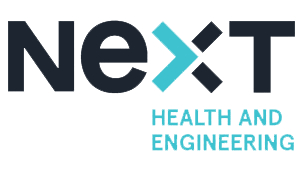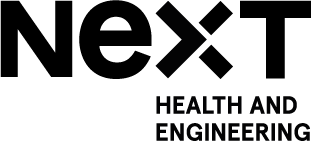L’EcUnOuv (Ecole-Université Ouvertes)
Contexte
Dans le cadre de ce projet, les étudiants de Master rencontrent les élèves de primaire ou du collège. Ces rencontres se réalisent au sein de l’université ou dans les établissements scolaires. Deux rencontres sont prévues pour chaque groupe. Ces rencontres permettent, entre autres, de travailler sur l’école du 21ème siècle au travers la notion de bien-être scolaire pour le premier degré et de proposer des ateliers de (re)médiation cognitive, dirigés par les étudiants pour les élèves du second degré. Ce projet est réalisé depuis deux années et a été proposé à plus de 350 personnes (parents, élèves du primaire/collège, étudiants du premier/second degré).
Objectifs visés
Les échanges entre les deux groupes sont riches et permettent de débattre des éléments qui contribuent à la qualité de vie à l’école et le bien-être scolaire. À partir des traces écrites réalisées par les étudiants et les élèves, nous proposons les premières lignes de ce que pourrait être l’école du bien-être de demain. L’ensemble des éléments sont présentés dans les rapports scientifiques pour rendre compte du potentiel de ces rencontres afin de changer le regard de chacun des acteurs de l’école (au sens large) pour faire cohésion.
Démarche mise en œuvre
De façon naturelle, nous nous sommes réunis avec les collègues du primaire et du collège pour développer un projet permettant la rencontre de différents acteurs de l’école. La première année, plutôt expérimentale, a permis de circonscrire le projet. Au cours de la seconde année, le projet s'est développé davantage en permettant une approche dite "gagnant-gagnant". L’important pour nous, c’est d’identifier ce qui est offert et reçu par chacun des intervenants des rencontres. Le tableau gagnant-gagnant est proposé dans un document en annexe ("Co-construire et co-gagner des savoirs ensemble dans une optique favorisant le bien-être scolaire pour tous les acteurs de l’éducation").
Ressources mobilisées
Ce projet de collaboration est rendu possible par la participation des enseignants du premier et du second degré, des parents d’élèves, des élèves de l’école primaire et du collège, et les étudiants de Master 1 de l’INSPE. Il est également soutenu par les inspecteurs de l’éducation nationale et la cheffe d’établissement du collège. Avec le temps, et la communication en lien avec ce projet, d’autres acteurs de l’éducation montrent leur intérêt pour ce projet.
Bilan et perspectives
Depuis deux années, nous avons pu observer des élèves scolarisés dans un réseau d’éducation prioritaire renforcée avoir accès à un lieu qu'ils ne connaissent pas : le campus universitaire. La réaction et leur participation dans ce projet nous renforcent quant au fait de poursuivre et de leur faire découvrir un environnement qui pourrait être accessible à l’avenir. De plus, c’est pour nous l’occasion de donner une autre image des élèves d’un réseau d’éducation prioritaire renforcée à nos étudiants qui vont devenir professeurs des écoles ou du collège dans ces réseaux. Les parents d’élèves, par leurs interventions, donnent à imaginer d’autres pistes pour devenir un professionnel accueillant toute la diversité comme une richesse. Les formateurs engagés dans le projet participent activement dans les échanges et la mise en place des différentes activités. Le bilan est donc positif et nous amène à poursuivre sur les années à suivre.
Rapport scientifique :
Mercier, C., Bucaille, T., Leffray, S., & Ledu, A. (2023). L’EcUnOuv (Ecole-Université Ouvertes) : Pour une école de bien-être [Report]. Nantes université. https://hal.archives-ouvertes.fr/hal-03925715
//
English version :
Context
In the framework of this project, Master students meet with elementary and middle school students. These meetings take place at the university or in the schools. Two meetings are planned for each group. These meetings allow, among other things, to work on the school of the 21st century through the notion of school well-being for the first degree and to propose workshops of cognitive (re)mediation, directed by the students for the second degree. This project has been carried out for two years and has been proposed to more than 350 people (parents, primary/college students, primary/secondary students).
Objectives
The exchanges between the two groups are rich and allow for discussion of the elements that contribute to the quality of life at school and school well-being. Based on the written traces produced by the students and the pupils, we propose the first lines of what could be the school of well-being of tomorrow. All the elements are presented in the scientific reports in order to give an account of the potential of these meetings to change the look of each of the actors of the school (in the broad sense) to make cohesion.
The process implemented
In a natural way, we got together with colleagues from primary and secondary schools to develop a project that would allow the different actors in the school to meet. The first year, which was rather experimental, allowed the project to be circumscribed. During the second year, the project developed further by allowing a "win-win" approach. The important thing for us is to identify what is offered and received by each of the stakeholders in the meetings. The win-win table is proposed in a document in the appendix ("Co-constructing and co-gaining knowledge together in a way that promotes school well-being for all the actors in education").
Resources mobilized
This collaborative project is made possible by the participation of primary and secondary school teachers, parents, students from the primary and secondary schools, and INSPE Master 1 students. It is also supported by the national education inspectors and the head of the school. With time, and the communication related to this project, other actors of education show their interest for this project.
Assessment and perspectives
For the past two years, we have been able to observe students from a reinforced priority education network having access to a place they are not familiar with: the university campus. Their reaction and participation in this project reinforces our desire to continue and to introduce them to an environment that could be accessible in the future. In addition, it is an opportunity for us to give another image of students in a priority education network to our students who will become school or college teachers in these networks. The parents of the students, through their interventions, give us the opportunity to imagine other ways to become a professional who welcomes diversity as a richness. The trainers involved in the project participate actively in the exchanges and the implementation of the different activities. The results are therefore positive and lead us to continue in the years to come.
Scientific report :
Mercier, C., Bucaille, T., Leffray, S., & Ledu, A. (2023). The EcUnOuv (Open School-University): For a school of well-being [Report]. Nantes university. https://hal.archives-ouvertes.fr/hal-03925715


